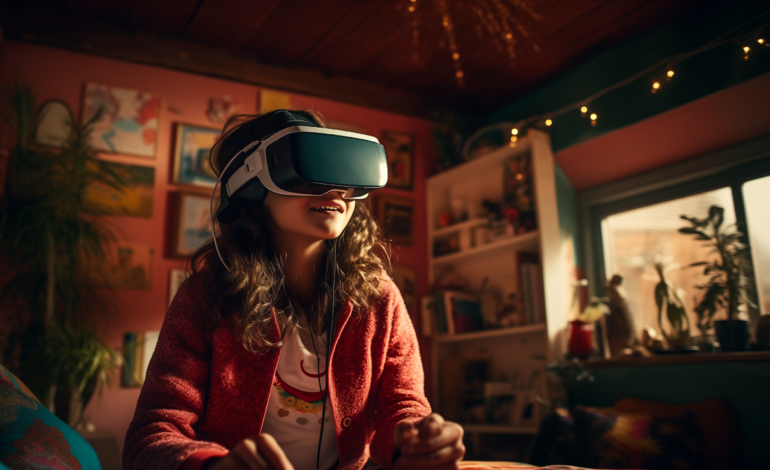Metaverse in education as a Learning Platform: Transform Education
Olivia Smith
- marzo 20, 2024
- 4 min read

We begin to discover how the metaverse in learning will change the way we teach in the classrooms of the not-so-distant future.
The metaverse represents an extraordinary shift in how we approach education, unlocking immersive learning experiences through virtual worlds. As the technology evolves, metaverse-enhanced platforms are poised to transform traditional classroom paradigms. This article explores emerging metaverse education models and key considerations for the future.
Reshaping Learning through Virtual Worlds
The metaverse enables learning adventures impossible in physical classrooms. Core capabilities made possible:
-
Immersive lessons using VR – Students are immersed in historical or scientific simulations, like walking through ancient Rome.
-
Multiplayer collaboration – Remote students come together in a shared virtual classroom for group projects and discussions.
-
Virtual field trips – Classes can explore distant times, places and environments first-hand through digital world-building, from the Sahara Desert to Mars.
-
Gamified learning – Educational quests, challenges and competitions motivate students via elements like scoring, achievements and rewards.
Teach and Learn in the Metaverse
Teach and Learn in the Metaverse opens up a whole new world of possibilities for education and training. As metaverse technologies continue to advance, the potential of the metaverse in education becomes increasingly apparent. The use of the metaverse in education can transform traditional learning environments into collaborative virtual environments where students can engage in immersive and interactive learning experiences. This shift towards virtual learning opens up new opportunities for blended learning, remote learning, and inclusive education across public education systems. With the application of metaverse technologies, educators can create tailored learning resources and structured learning environments that cater to individual student learning needs, ultimately enhancing learning outcomes and student engagement.
Through the metaverse roadmap, the future of education in the metaverse looks promising. As more research is conducted and new technologies are developed, the possibilities for learning in a meta quest are endless. Language learning, in particular, could be revolutionized through the development of virtual environments that simulate real-world language immersion experiences. By incorporating metaverse technologies into language learning programs, students can practice their language skills in a more authentic and engaging way, leading to improved learning outcomes.
Collaborative learning
Collaborative learning is an approach where teachers and students work together to achieve a common goal. With the advancement of technology in education, the use of virtual reality and the metaverse could have a significant impact in the field of education.
The metaverse has the potential to transform education by providing a vr platform for collaborative learning and teaching. Research related to the metaverse in education and the impact of the metaverse on areas of education are important research issues of the metaverse. The metaverse requires further exploration and understanding in order to fully utilize its potential in education for students. The metaverse can help enhance individual learning experiences and create more engaging environments for students to enter the metaverse
Real World Metaverse Education Platforms
While early stage, examples of growing metaverse learning platforms include:
-
Immersive VR Education – VR lessons and simulations in history, science, arts and more. Used by schools and institutions globally.
-
Metaversity – Virtual campus with scheduled live classes and speakers on Web3 topics. Crypto-enabled ecosystem.
-
olovoh – Interactive virtual tour creation for schools – virtual field trips to museums, landmarks and more.
Key Challenges to Address
To leverage the full potential of metaverse learning, key challenges remain around:
-
Access – Addressing barriers to adoption like expense of VR headsets and motion sickness.
-
Teacher training – Enabling educators to effectively incorporate metaverse tools and experiences.
-
Safety – Implementing protections against harmful behavior at scale across open metaverse platforms.
-
Compliance – Adapting regulations and standards around data privacy, accessibility accommodations and more.
The metaverse enables education possibilities beyond physical limits – collaborative VR classrooms, simulated learning adventures and experiential discovery in virtual worlds. As platforms mature, this immersive model could make learning more accessible, engaging and impactful. But careful evolution is required to address very real ethical, regulatory and adoption challenges in this digital frontier.




